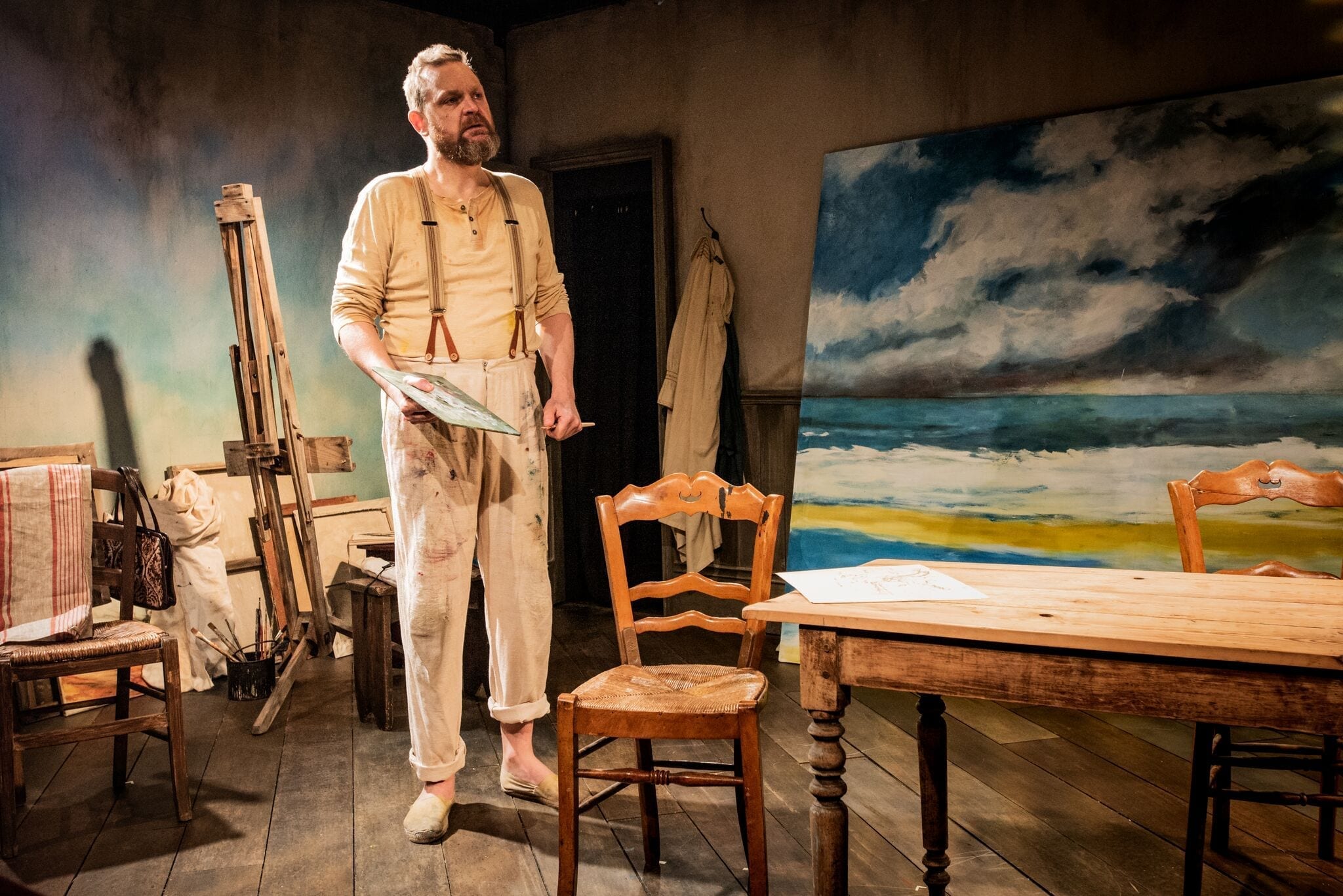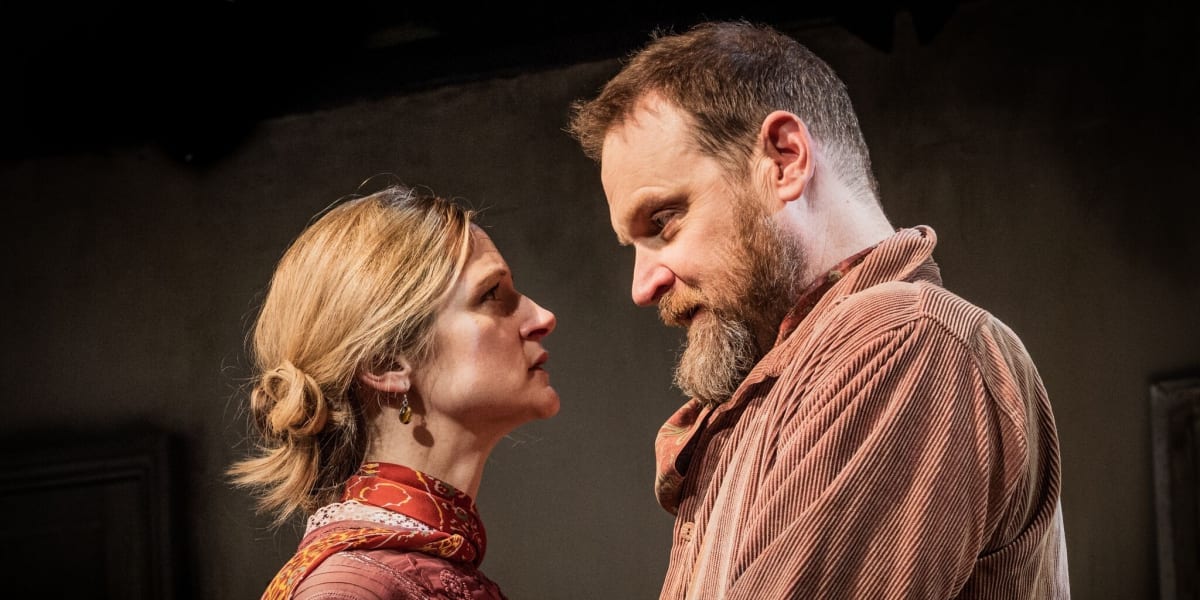Harley Granville-Barker is still known, but not nearly as well-known as he used to – or for that matter should – be. Productions of ‘The Voysey Inheritance’ and ‘Waste’ are not rare, but nor are they regular. His huge sequence of ‘Prefaces’ to Shakespeare are still cited by academics, but mainly occupy a lot of shelf-space in second-hand bookshops giving little sense of how as a director his modernising work on both text and naturalistic presentation was ground-breaking. Of his work as a lead actor, especially in the first productions of Shaw’s major plays, inevitably few traces remain. His tenure at the Royal Court is occluded by what came later and his early campaigning for a National Theatre forgotten. Yet it is impossible to understand the history of twentieth-century British theatre without him.
A fresh and exciting glimpse of his qualities is on offer briefly at the Jermyn Street Theatre with a performance of one of his earliest plays, ‘Agnes Colander’. It was recently discovered as a century-old manuscript in the British Library, first produced in Bath last year, and now is brought to life again in a revision by Richard Nelson, directed by Trevor Nunn. Barker never staged the work partly because he regarded it as unfinished and partly because he was convinced it would never be sanctioned by the Lord Chamberlain.
The play explores the situation of a woman married too young to an older man who she has left in order to pursue her work as an artist. We meet her three years later dissatisfied with the progress she has made and wondering whether to return to her husband, to embrace the bohemian life to the full by teaming up with Otto, a Danish painter based in France, or to take up with Alec, a much younger man who is besotted with her in a wholly naïve way. A final choice would be simply to focus on her work: are her relationships holding back her development as an artist or necessary to it?
One way or another how to manage ‘the sex question’ lies at the heart of the powerful duologues which provide the structure for this play. Should women accept ‘happy slavery’, or refuse compromise, and find meaning in work rather than relationships? What can be done about men who insist on placing women on artificial pedestals? How can women best negotiate relationships with men when sex takes the place of friendship and social convention gives men so much more freedom of action, control and initiative?
You can say that surely this is all dated Edwardian stuff, but what is striking is how the same arguments and issues are sadly still with us, and rarely presented in such an engaging fashion. The arguments are followed through clearly and fully dramatised as credible conflicts and reconciliations. Just as ‘The Inheritance’ showed how relevant the arguments of ‘Howard’s End’ can still be, so the dynamics of this play transcend their era of composition, and eerily anticipate the deeper reflections to be found in Virginia Woolf’s ‘To the Lighthouse’.
The actors here are mainly the same team as the premiere in Bath a year ago. Naomi Frederick captures excellently the passion and vulnerability of Agnes, convinced of her own self-worth but still very much tied to middle-class assumptions. Her acting embodies her dilemma of how to choose ‘more life and less good manners’. As Otto, Matthew Flynn is suitably coarse and self-centred on his artistic calling, but there is also a plain-spoken realism about his role and a clear and compelling sense of chemistry between them. The actors in the minor roles have less to work with, but all the same Harry Lister-Smith does his best with the straight-laced Alec, and Sally Scott is memorable as the sly and worldly widow, Emmeline, who has chosen to operate deftly within the boundaries of what pre-War society permitted women. Playing the maid is often unrewarding, but Cindy-Anne Armbruster does a lot with her French and English incarnations without upstaging the others.
The excellent creative team thrive off the challenge of a very restricted space. The transition from the wan, washed-out taupe and olive of a grey London studio to the shifting, bright shimmering tones of a Normandy seaside cottage is swiftly and dexterously achieved, and Robert Jones, Paul Pyant, and Fergus O’Hare ensure that sound, light, costumes and set all register telling moments.
This is not a lost masterpiece, but it is also a lot more than a curiosity. Even if you remove the showcase of a consistently excellent Rolls-Royce production, there is still both a fascinating historical document in the dramatic representation of gender equality, and a play of wit, style and even-handedness in argument that gives great opportunities to its players.

